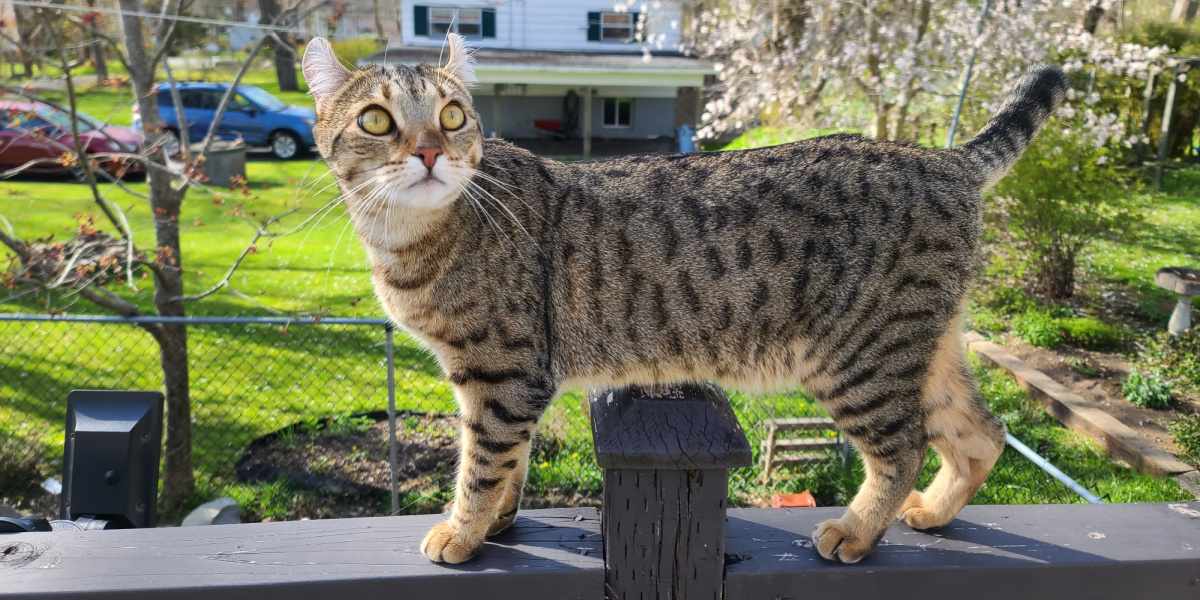
Cats love a good snooze, with some of these cuddly felines being able to sleep for up to 20 hours a day! It’s common to find a cat curled up in a comfy spot for most of the day and night, with short bursts of activity around dawn and dusk, when cats are at their most active.
We’re used to this sleepy cat schedule, so it may be concerning to find your cat pacing constantly around the house. They may be unable to settle, or perhaps constantly meowing or showing other behavior changes.
Any change to cat behavior can be a sign that something is amiss, and if you notice your cat pacing, it may be due to one of a few reasons: stress, boredom, pain, hormones, pregnancy, or a health issue. It’s certainly a signal that your precious puss may need veterinary attention.
Key Takeaways
Cats may pace due to a variety of reasons and this is generally a sign of another issue.
In many instances, you can help your pacing cat by addressing the underlying cause.
Pacing can occasionally be caused by medical issues that need prompt veterinary care.
Read on for the common reasons why your cat may be pacing, and how we can help them.
1. Boredom
Cats may be the champions of snoozing, but they are also intelligent, active, and curious creatures. Descended from avid hunters, they have a strong predatory instinct and agile bodies.
If your cat doesn’t have outdoor access or enough physical and mental enrichment, they may become bored. This is especially true of young cats and kittens but can be a problem for older cats too.
Boredom and frustration can lead to stereotypical behaviors, such as pacing or excessive vocalization. This may eventually lead to behavioral problems, such as destructive behavior and aggression.
How Can You Help?
Grab the cat toys and set aside some dedicated playtime with your cat! Consider investing in some enrichment such as cat trees, puzzle feeders, and scratching posts. Give your cat plenty of attention, including grooming and cuddles, and try and spend as much time with them as possible.
2. Stress or Anxiety
Stress can be caused in cats by many different factors: a new pet, a new family member, building work, sudden noises, and more.
They also show their anxiety in different ways, from pacing to urinating outside the litter box, changes in their body language and behavior to a change in vocalization. If your cat is pacing around a lot, showing some behavioral changes or an altered routine, they may be on edge about something.
How Can You Help?
Feline behavioral issues can be complex, and it is often a good idea to seek professional advice from a veterinarian or qualified behaviorist.
Your cat may need some environmental change, such as a safe place for them to hide away, or they may benefit from a pheromone diffuser such as Feliway to help them feel secure and calm. Some cats may benefit from anxiety medication, which must be discussed with a veterinarian.
3. Hormones
If you own a young, or unneutered older cat, their pacing may be hormonally driven. Female cats will pace around, yowling and performing some excessive meowing when in heat. Male cats may also pace and get very agitated if there is a female cat around. If you are hearing your cats meow a lot, or see them actively pacing and excitable, think about their heat cycle and whether this may be the cause!
How Can You Help?
If you don’t want to breed from your cat, having them neutered will prevent these hormonally driven behaviors.
4. Pregnancy
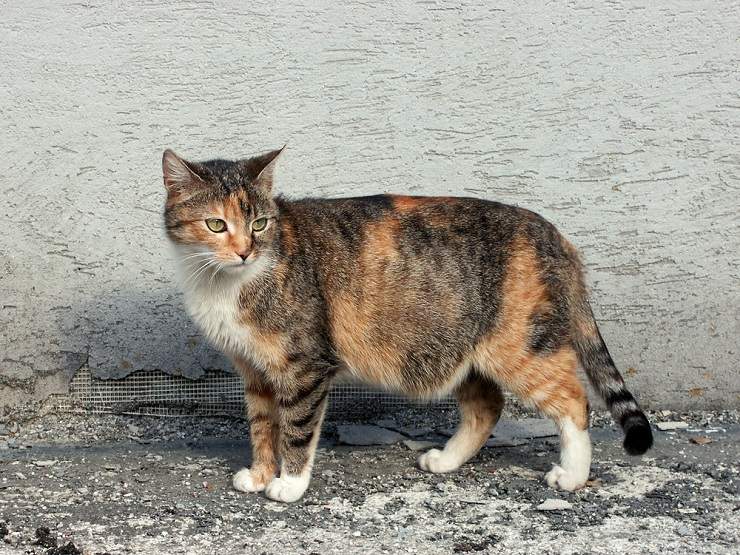
Another pacing behavior commonly seen in humans, pregnant cats may pace as they find difficulty settling before giving birth.
In the last stages of pregnancy, before they give birth, female cats can become agitated and unable to settle. This can present as pacing, vocalizing, and spending time trying to find somewhere suitable to give birth.
This is a perfectly normal stage of labor. The first stage of kittening involves intermittent contractions (without straining), pacing, and scratching at her bed, and can last up to 36 hours.
How Can You Help?
Most cats will give birth with no assistance. Leave her well alone, with a comfortable place to give birth, and try and observe quietly from a distance. You should consult a veterinarian if this first stage lasts longer than 24-36 hours, with no straining, or if contractions start but no kitten is produced within 30 minutes.
Other signs that may require a veterinarian are a bloody or green discharge with no kitten, the mother cat seems very weak, or a kitten getting stuck halfway and cannot be gently dislodged.
5. Medical Problems
There are various health conditions that can cause pacing. Elderly cats are more likely to be affected, but some can occur in cats of all ages. It is important to keep a close eye on subtle signs like pacing, as even small changes to your cat’s normal behavior can give a lot of insight into cat health.
Here are some of the medical conditions that can have pacing as a symptom.
1. Pain
Cats have strong survival instincts and are good at masking signs of pain. A common signal that your cat is uncomfortable is an inability to get comfortable and rest, and they become agitated, pace around, and constantly get up from their beds.
They may also hide away, react negatively to touch and affection, stop eating, or vocalize excessively. They may sleep more, or they may be unable to sleep and pace around all night.
Pain can be caused by different reasons: dental problems, a fall, an accident or fight, or a chronic medical condition such as arthritis. This is mostly seen in more senior cats, but pain is not exclusively an old-age problem.
2. Hyperthyroidism
An overactive thyroid is a common condition in cats, usually seen in older kitties. The increase in thyroid hormone causes a ravenous appetite, excessive thirst and urination, weight loss, and often some degree of hyperactivity.
Affected cats are often described as skittish and agitated. They may change their sleep habits, pace around the house all day and night, and react in an exaggerated way to sounds, sights, and textures.
3. Cat Dementia
Feline cognitive dysfunction (or dementia) is a condition of older cats where their mental facilities become less able, leading to confusion and disorientation. Affected cats may vocalize excessively, have changes to their sleep cycles, become disorientated even in familiar places, change their interactions with owners and other pets, and often struggle to settle.
It is not unusual for these kitties to pace around the house for long periods of time, unable to orientate themselves and get comfortable.
4. Neurological Conditions
Some diseases of the brain and spinal cord, including poisonings, can affect a cat’s gait. They may circle, adopt an exaggerated marching walk, pace continuously, or walk in a wobbly and unbalanced way (ataxia). There may be other signs, such as changes to the eyes, a head tilt, stiffness, or seizure activity.
How Can I Help?
These medical conditions all require veterinary attention. If you are concerned about your kitty, it is always advisable to seek professional advice. Many of these conditions are manageable or even curable, and prompt diagnosis often leads to a better prognosis.
Pacing: Final Thoughts
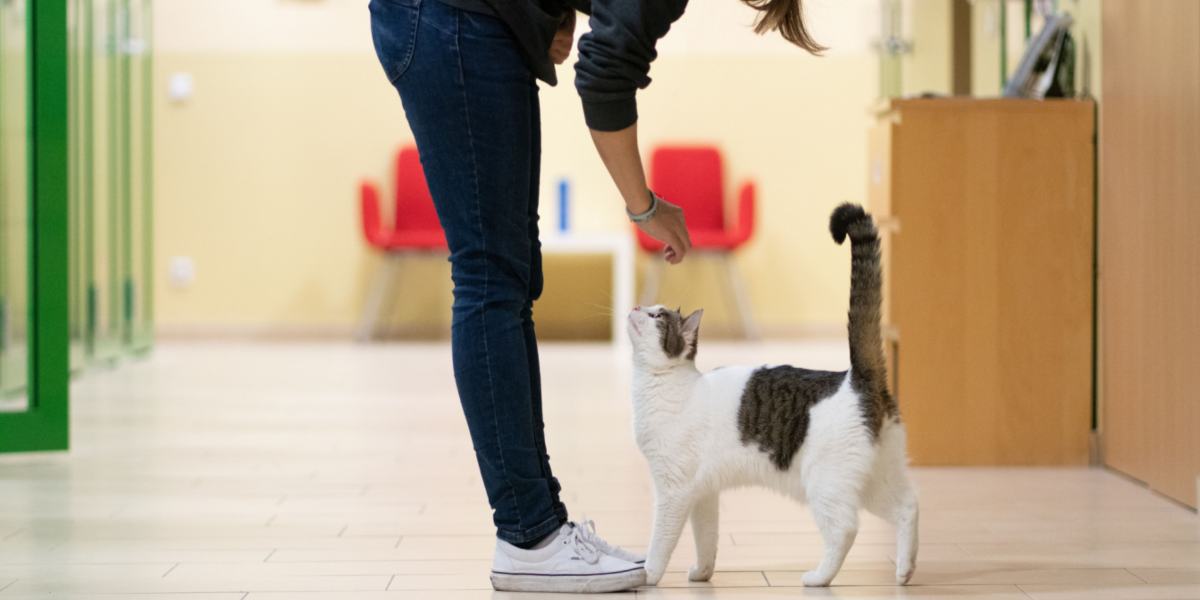
Understanding the reasons behind your cat’s behavior increases the likelihood that you can help them stay happy and healthy.
If you’ve been concerned about your kitty, wondering why your cat paces around so much suddenly, or have been noticing subtle changes to your cat’s behavior, there may well be an underlying cause.
Pacing is not a normal part of cat behavior. Finding the reason behind it opens up options for improving your cat’s health and well-being. Whether your cat is bored, stressed, hormonal or ill, there are plenty of things cat owners can do to correct this unusual problem.
Also Read: Top 10 Things Your Vet Wishes You Knew
Frequently Asked Questions
How do I stop my cat from pacing?
Your cat may be pacing because they are bored, stressed, hormonal or ill. Seek veterinary attention if your cat seems unwell or their behavior has changed. If your cat is young and healthy, try upping their playtime.
How can I calm my restless cat?
It is important to find the source of the restlessness – they may be bored, anxious, in heat, pregnant, unwell, or in pain. Provide plenty of places for your cat to hide, sleep and make sure to provide plenty of playtime. Seek veterinary advice to rule out health problems.
Why is my cat pacing and crying around the house?
If your cat is young, they may be bored, stressed, in heat, or pregnant. Older cats may be suffering from cognitive decline or other health concerns. Pain can also cause pacing behavior in cats.
Why is my elderly cat pacing?
Senior cats can pace due to pain, anxiety, cognitive decline, or medical conditions such as an overactive thyroid. Get them checked over by a veterinarian to rule out any health concerns.



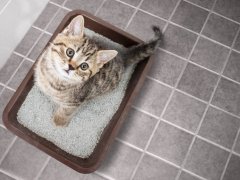
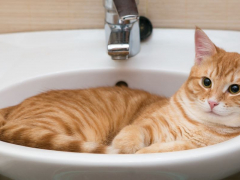
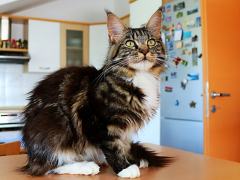

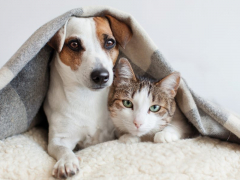
I am absolutely terrified that something is wrong. My 15 year old Siamese Maine Coon is suddenly pacing all over my room. He doesn’t seem to be unhappy at all. I am extremely concerned. His name is Blue, he means everything to me. My daughter is pregnant and I was wondering if he might be picking up on that. Please let me know what you think.
Hello there! If you can get your cat in to see a vet, that would be the best way to put your mind at ease. It’s entirely possible that he is stressed due to your daughter’s pregnancy, but a vet visit is the best way to rule out other reasons.
My 16 year old neutered male cat is pacing aimlessly around the house. I’ve had a complete vet check with X-rays and bloodwork and everything is perfectly normal. I need to know how to help him.
Hey there JoDell, it sounds like your cat may be dealing with stress or anxiety. If this started recently, it may be related to some kind of external issue or, perhaps, his age. Feline cognitive function affects many cats aged 16 and older, which can alter their behavior. The ASPCA has a guide to this issue here.
Thanks Mallory but I may have figured it out. He has stage one kidney failure and I recently started giving him cerenia for nausea. Kidney cats can negatively react more easily. I am taking him off the cerenia and getting him to the vet as soon as they will see him.
Thanks for the followup! That’s valuable context, and I hope you’re able to figure things out. 💞
I’ll let you know. I have a vet appointment on Wednesday at noon.
Fingers crossed. 🤞